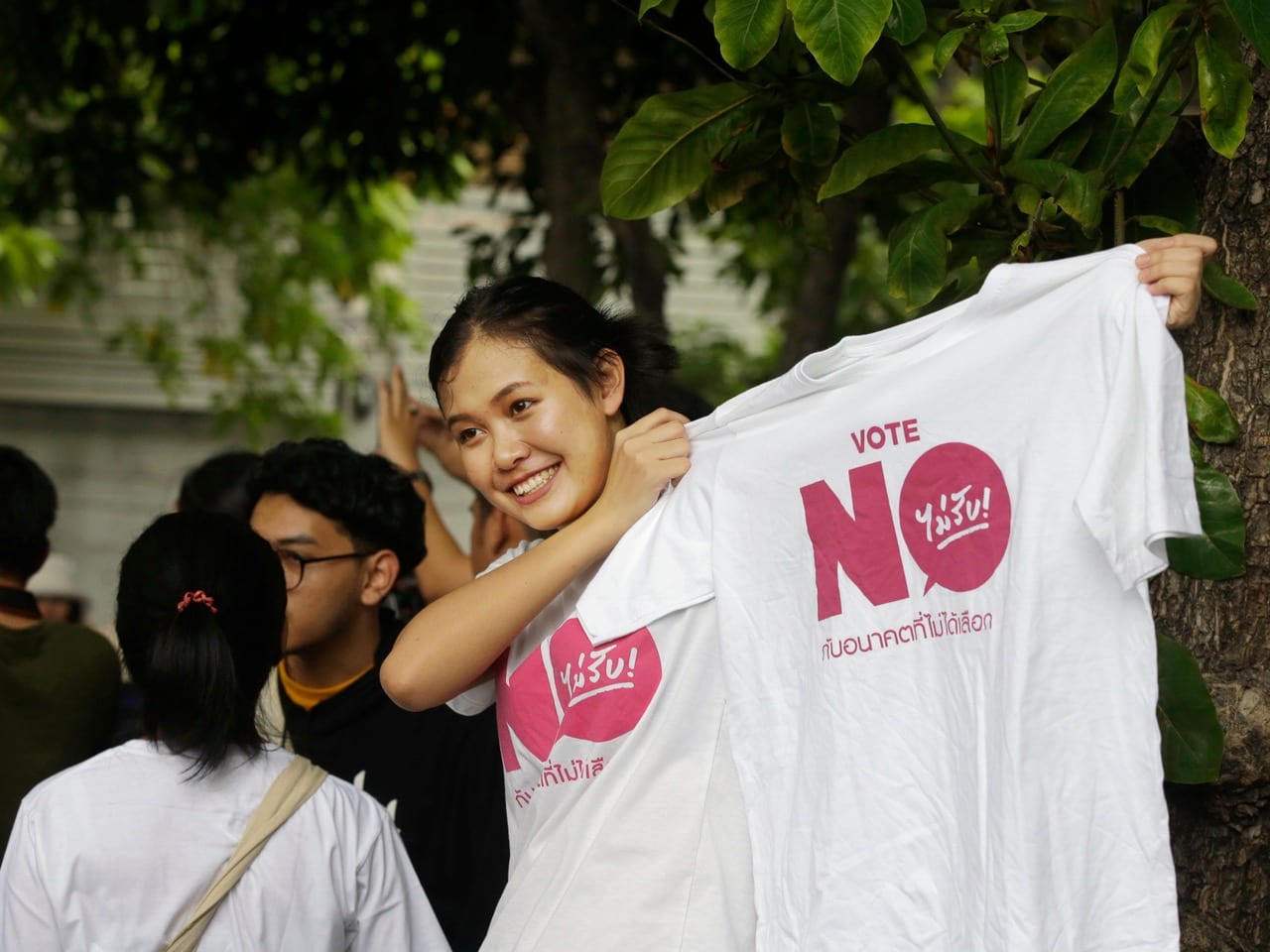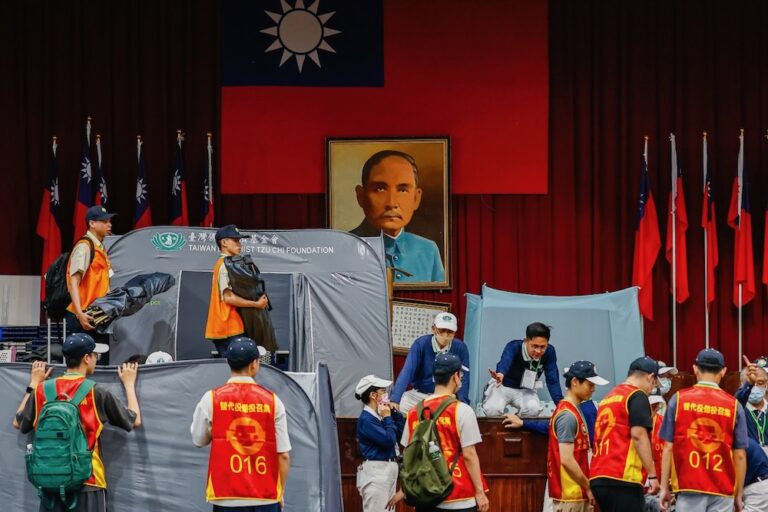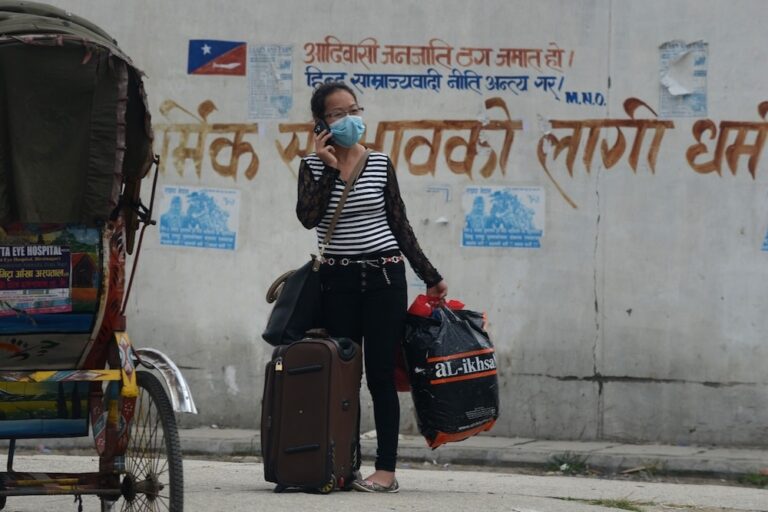Young people are giving new energy to resistance movements in Hong Kong, Thailand, the Philippines, Burma and Malaysia.
Teenager vs. superpower
“What were you doing when you were a teenager?”
Director Joe Piscatella throws out this question as he introduces his documentary, featuring Hong Kong activist Joshua Wong, known for leading protests as a 16-year old in 2012 against the introduction of a pro-China school curriculum, and later, the 2014 Umbrella Revolution. The documentary, Joshua: Teenager vs Superpower, received the audience award at the World Cinema Documentary at the 2017 Sundance Film Festival held in Utah in January. It tells the story of Wong, now secretary-general of the party Demosisto, who is challenging the Chinese Communist Party and whose movement saw the youngest candidate elected to the legislative council in 2016.
Wong represents a new generation of youths taking on the might of governments bent on crushing dissent and monopolizing power. In May 2011, together with friends, he founded Scholarism: an activist group focused on education policy, political reform and youth policy.
A year later, they would bring together 120,000 students and members of the public to protest the introduction of a compulsory subject on moral and national education which failed to mention the Tiananmen massacre and glorified the Chinese Communist Party.
Then, in September 2014, students boycotted classes to protest China’s new rules that would let it influence the selection of candidates for the leadership of the city. The boycott preceded the planned protest by long time pro-democracy academics, individuals and groups on 1 October, which later came to be known as the Umbrella Revolution. Polls showed that in the build up to that protest, young people, especially those with higher levels of education, felt mostly strongly against the Hong Kong and Beijing governments.
Since the handover of Hong Kong from Britain to China in 1997 under a “one country, two systems” formula, it has enjoyed autonomy and freedoms not present in the rest of China. However, in an interview with Freedom House, Wong says the prospect of democracy is fast diminishing. A general distrust of institutions that tend to be seen as pro-Beijing is reflected in increased public actions, protests and rallies, especially since 2003.
The heavy-handed response by the authorities in 2014 against protestors and journalists surprised many, and was criticised by groups like the Hong Kong Journalists Association.
He has a point. #hongkong‘s pint-sized democracy hero #HongKong #JoshuaWong #Umbrellamovement https://t.co/YlZQfausrh
— Divya Gopalan (@DivyaGnews) February 1, 2017
Was the Umbrella Revolution successful? The next election for the Chief Executive of Hong Kong, currently the highest office of the Hong Kong Special Administrative Region, is scheduled for 26 March, and Beijing still wields the power to decide not just who the next leader will be, but also the rules in the legislative council. In that sense, it was not; but, as writer Suzanne Pepper concluded in her article on its second year anniversary, even if the protests failed to alter the election rules, they have forced the recognition of serious political frustrations with the Chinese power:
“Real independence is not an option. Almost everyone understands and accepts that fact even if they don’t like it. But the independence advocated by the banned candidates has become a code word, a rhetorical device useful in spotlighting and identifying all that’s wrong with the Beijing-Hong Kong relationship.”
Without a doubt, Wong has attracted China’s attention, both inside and outside the country. Governments in Southeast Asia willingly bowed to China’s ‘request’ to prevent his entry into Malaysia in May 2015 and Thailand last October, where he was scheduled to meet with student activists and speak at political events.
So it’s official, Thailand is the new China #joshuawong #hongkong #UmbrellaMovement https://t.co/jmoZOqHjnt
— Vivienne Chow (@VivienneChow) October 5, 2016
Against the backdrop of shrinking spaces for civil society globally, it is refreshing to see youth taking their place in the region’s political arena, armed with the power and reach of digital media and creativity.
Flash mobs and Orwell in Thailand
Since the military launched a coup in Thailand in May 2014, freedom of speech and political opinion have come under strict control, silencing all forms of political opposition. Despite the suppression, university students and those still in high school have dared to speak publicly and organised protests and flash mobs.
The Education for Liberation of Siam (ELS) is one example of high school students fighting for academic freedom and youth politics. Its secretary-general, Nattanan Warintarawet, was 17 in 2014 when the group issued an open letter to the junta-appointed Prime Minister Prayut Chan-o-cha for an effective education reform, as opposed to his authoritarian version of a compliant system.
Youth groups have organised flash mobs, which included public readings of George Orwell’s novel 1984 and flashing the three-fingered salute based on the Hunger Games films. Others have been more vocal and direct in their criticism of the junta, mobilising against the military-drafted charter that has set the country back in terms of political freedoms and rights.
Like others with dissenting views in Thailand, student activists have been targeted by the junta for online remarks related to the monarchy. In the latest case, law student and activist Jatupat “Pai Dao Din” Boonpattararaksa was charged under lese majeste for sharing a BBC Thai article on the monarchy on his Facebook page. Human Rights Watch has called for his immediate release.
Reach of #Thailand‘s vague lèse-majesté law is absurd; case of #PaiDaodin exposes its threat to peaceful #FreeExpression. https://t.co/lYy0t9ob1H
— Scholars At Risk (@ScholarsAtRisk) December 3, 2016
Though others are less optimistic, Thai scholar Tyrell Haberkorn says that despite the arrests for organising protests and for insulting the monarchy, the university students are having an impact.
“What students have done since the coup is quite remarkable. They have the potential to become a broader movement.”
Bangkok Post journalist Achara Ashayagachat writes in her 13 January article how she admired the spirit of Boonpattararaksa and his family.
“As we celebrate Children’s Day tomorrow, I can’t think of another youth whose life has been so fascinating and inspiring. He is a role model for social activists.”
“Antirevisionists” in the Philippines
High school students and other youth rallied across the Philippines last November against the hero’s burial of ex-dictator Ferdinand Marcos. President Rodrigo Duterte had pledged in his election campaign to allow Marcos to be buried at the National Heroes Cemetery, describing his martial rule as “a golden age in the Philippine history”. Marcos was president of Philippines for 21 years before a pro-democracy movement brought an end to the dictatorship in 1986.
Protestors had filed a case in the Supreme Court to stop the burial, but to no avail. But this did not stop thousands of people, especially youth and high school students from protesting the rewriting of history.
At Ateneo gate 2.5 now. Prayers being said. Oldies outnumbered by Millennials. Awesome! pic.twitter.com/XLG97MiyM6
— Leah Navarro (@leahnavarro) November 8, 2016
Their participation is particularly significant in a context where young or first time voters have been blamed for ignoring history and voting in a president whose controversial campaign promises and heavy-handed administration are raising local and international concerns.
The Philippine Daily Inquirer, one of the most widely circulated newspapers in the country, honoured the “Antirevisionists” and the millennial as Filipinos of the year.
The Antirevisionists are @inquirerdotnet‘s Filipinos of the Year #2016 https://t.co/BT6PHxvgxH #MarcosNoHero #MarcosNOTaHero #history #PH
— Kristoffer Pasion (@indiohistorian) January 15, 2017
Fighting for unions and teaching in minority languages in Burma
Students have been at the forefront of Burmese democracy movements, including the 1988 “People Power” uprising. In September 2014 they led the opposition to an education law, rejecting the centralization of the control of higher education and demanding the right to form student unions as well as teaching in ethnic minority languages.
After failing to get the government to include them in discussions to amend the law, student leaders and other activist groups led a march from Mandalay towards the capital Yangon and organised protests within the city.
The former military government, which proposed the law, declared the marches illegal and responded violently against the protestors in the town of Letpadan in March 2015. ARTICLE 19 condemned the crackdown, and reiterated the need to keep a UN Special Rapporteur for Burma.
More than 100 students, activists and villagers were arrested in relation to the march, including one of the movement’s key figures, Phyoe Phyoe Aung, whom Irrawaddy.com included among the most inspiring women in Burma in 2016.
Demanding accountability in Malaysia
The prime minister of Malaysia has been embroiled in a financial scandal involving a public trust fund. The scandal has led to censorship of the media and the silencing of critics, fueling public discontent.
In 2016, 24-year old Anis Syafiqah Mohd Yusof led a student protest to pressure the Malaysian authorities to investigate and take actions against the prime minister. Syafiqah and three other co-organisers – Mohamad Luqman Nul Haqim Zul Razali (23), Muhammad Luqman Hakim Mohd Fazli (22) and Suhail Wan Azahar (22) – faced university disciplinary actions for being involved in the rally in August last year, but these were subsequently lifted on appeal.
Then, two of them were also arrested ahead of the electoral reforms demonstration in Kuala Lumpur last November, for two days, together with other organisers and opposition politicians in an attempt to discourage rally supporters.
In an interview with Malaysiakini.com, Anis Syafiqah says youth have been accused of being apathetic, but she believes they have a role to play as agents of change.
“At the very least, we as students have sparked a wave of consciousness among all Malaysians, on the need to rise for change.”



